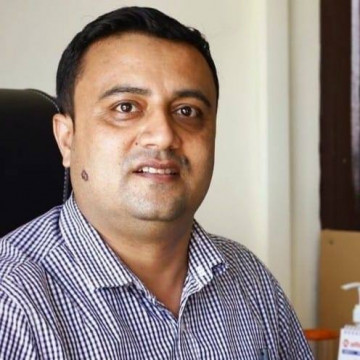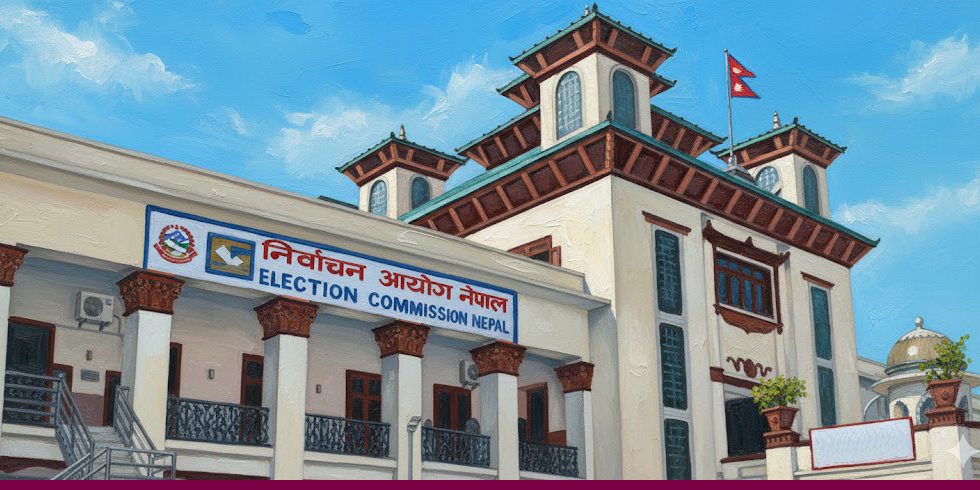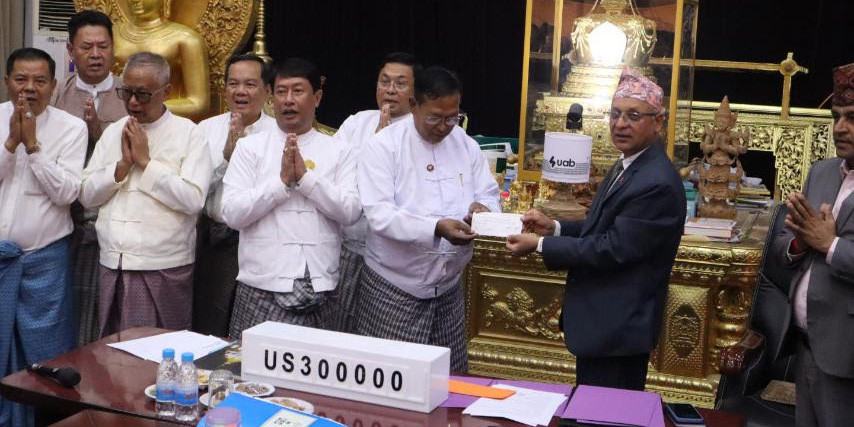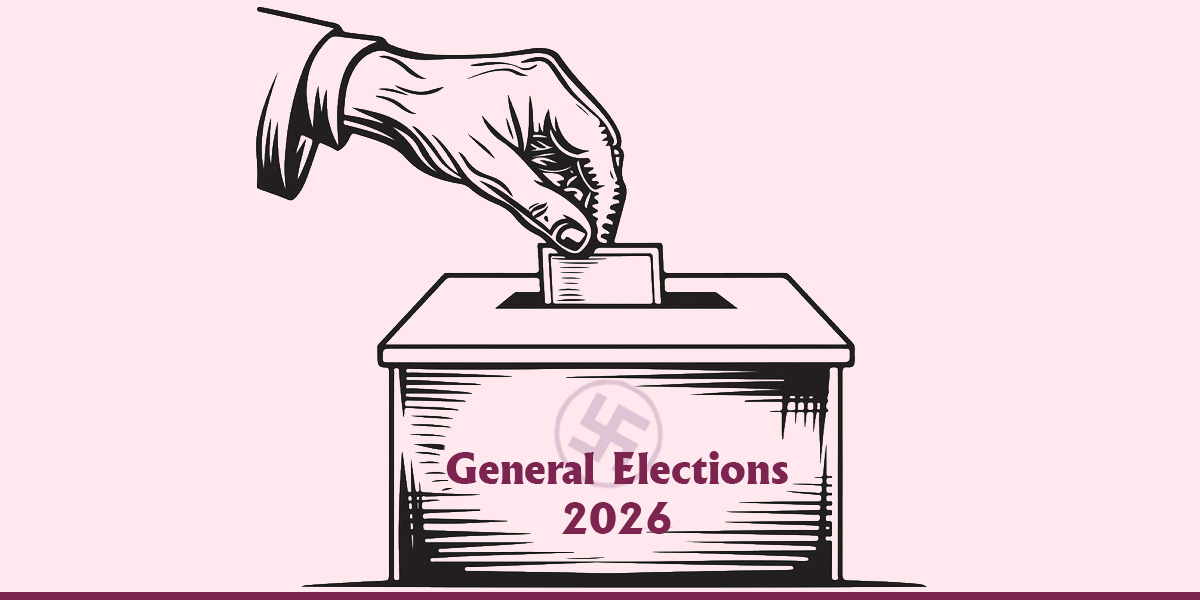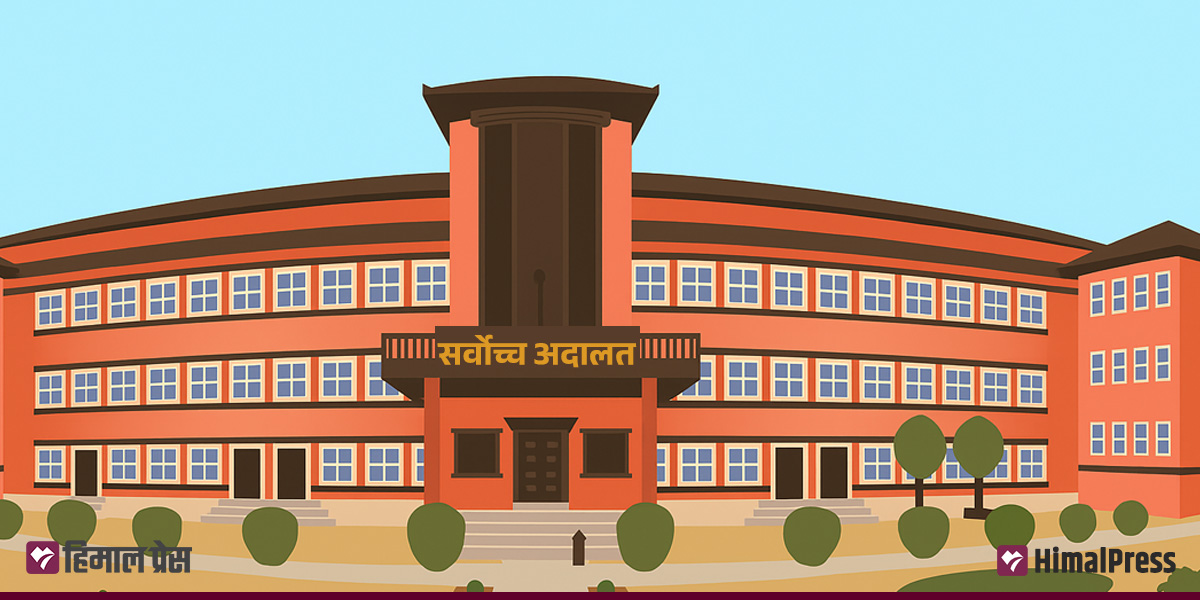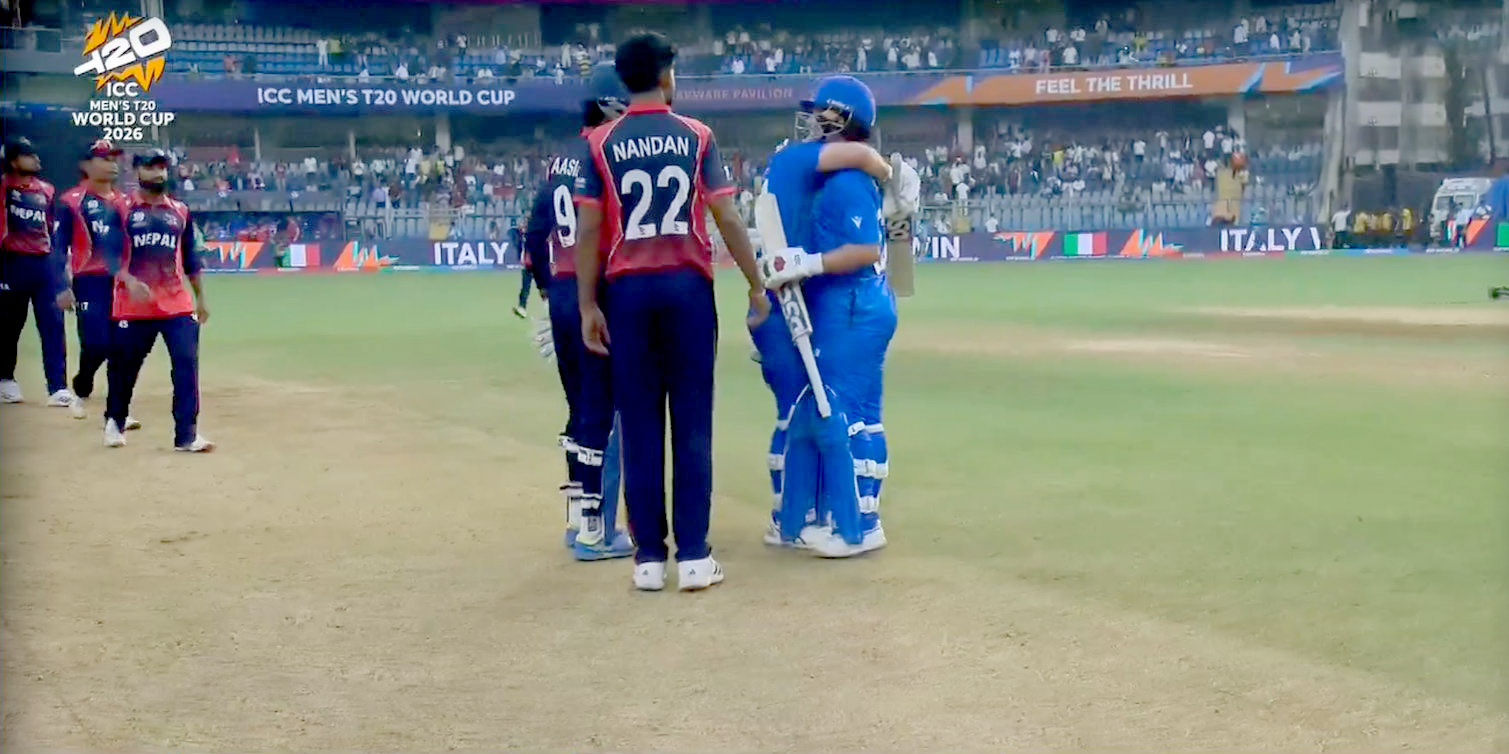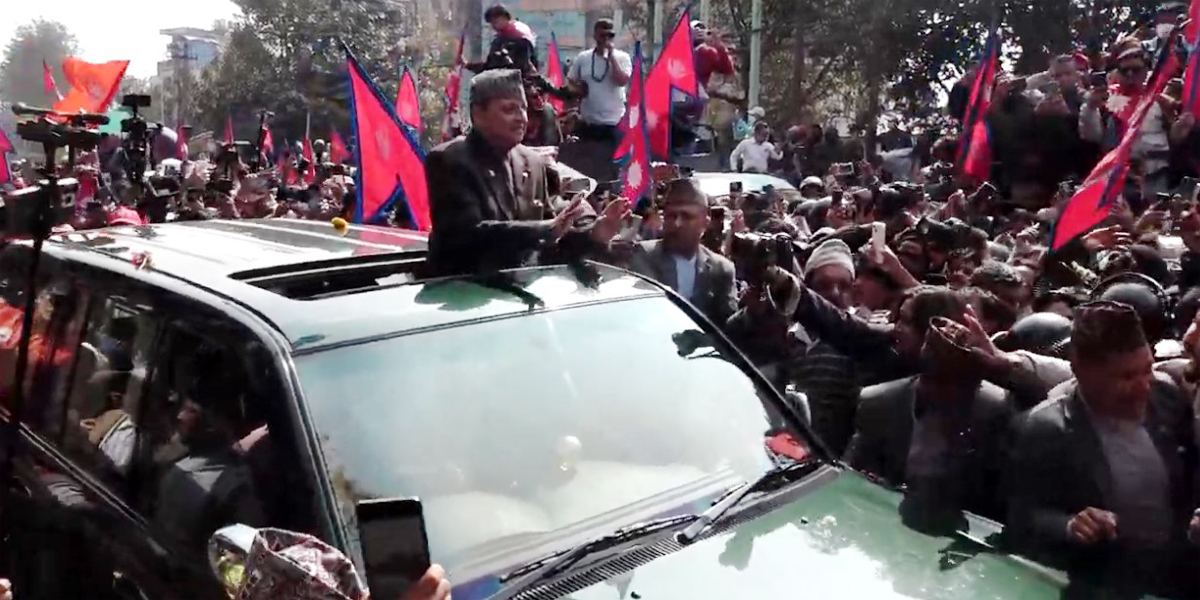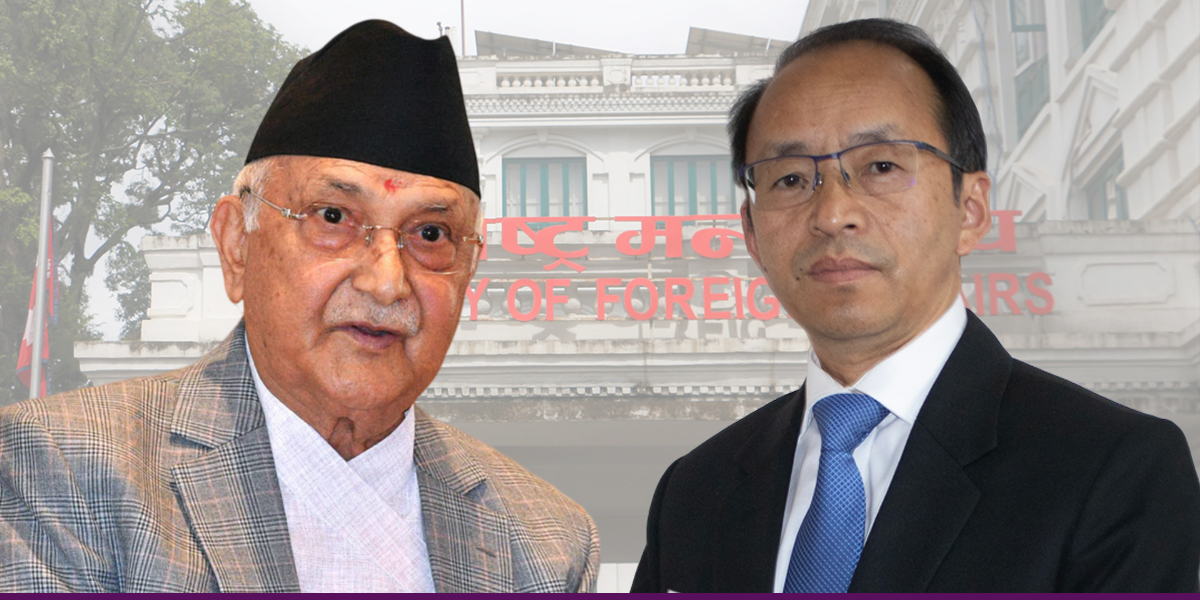
KATHMANDU: “Our country is at a crossroads of challenges and opportunities. We must diligently work to overcome the challenges and utilize the opportunities for the benefit of the nation. I am committed to this,” said Amrit Bahadur Rai after assuming the role of the 26th Foreign Secretary of the country. Rai believes that if work is carried out according to his vision, there will be a genuine transformation in the Ministry of Foreign Affairs.
Rai has stated that he will strengthen the Ministry of Foreign Affairs to enable it to tackle all kinds of challenges. While most employees are not getting sufficient responsibility, new positions have been created in the ministry. Service seekers complain that many officials are not seen in the ministry after 2 pm. Most employees seem more focused on gaining fame rather than conducting studies and working for the nation’s benefit. Some show ambitions to reach leadership positions shortly after joining the service. Embassies in foreign countries are demanding the creation of new positions instead of recruiting local staff. It remains to be seen how Rai will tackle this issue.
Currently, the world is undergoing a rapid transformation. Poor countries are striving to take the lead globally, while so-called wealthy nations appear to be declining. Rai has taken on the role of Foreign Secretary in this challenging situation. The foreign minister is also inexperienced. However, Rai will work directly under the guidance of Prime Minister KP Sharma Oli rather than under Foreign Minister Arzu Rana Deuba.
Rai brings two decades of experience in foreign affairs. In this time, he has served twice as a full-time ambassador and once as an under secretary in New York. His first posting was also in New York, and before becoming Secretary, he was stationed there as well. Out of his 20 years in foreign service, he has spent 14 years abroad. It is said that most foreign ministry employees have been formally paying membership fees (levy) to the CPN-UML. What kind of cooperation Rai will receive from them is yet to be seen.
Opportunities Also Exist
When Rai assumed the role of Foreign Secretary, the ministry received not just an adequate but an excessive number of joint secretaries, under secretaries and officials. The ministry, therefore, cannot claim a shortage of human resources as a reason for its underperformance. The ministry has been allocated so many staff that even after assigning them to various missions, it will be difficult to manage them in ministry divisions.
Rai is considered fortunate because, during his tenure, most joint secretaries are experienced officials who have already served a term as ambassadors. If Rai can delegate responsibilities and work with trust, he will succeed. However, if he falls into the trap of political biases, seniority-based relationships, or harboring resentment toward others, he will end up like his predecessors.
Close Ties with Oli
Rai entered civil service 30 years ago. However, he joined the Ministry of Foreign Affairs as an under secretary only at the end of 2005. Shortly after Rai joined the foreign service, KP Sharma Oli became the Foreign Minister. Rai then worked as Oli’s personal secretary. Trained under former Foreign Minister Ramesh Nath Pandey, Rai was known for his reliability. Perhaps this is why he always remained in Oli’s good books.
Twenty years ago, Rai was transferred from the tourism ministry to the Ministry of Foreign Affairs to work in a task force under then Foreign Minister Pandey. He spent some time in Pandey’s secretariat. At that time, Pandey’s assistant was then Under Secretary Shankar Das Bairagi (who later served as Foreign Secretary for seven years, Chief Secretary, and retired as Security Council Advisor).
Rai began working closely with Bairagi. While working there, he applied for the position of under secretary in the foreign service. He got the position and returned to the Ministry of Foreign Affairs as an under secretary. After KP Sharma Oli became the Foreign Minister, Rai became his assistant. Oli took Rai on as a reliable under secretary. That relationship has remained useful to this day.
Thanks to his capabilities and his close ties with Oli and the Prime Minister’s Office, Rai’s first posting was in New York. He returned to the ministry as a joint secretary and then served as an ambassador to South Africa. From there, he was directly recommended as the Permanent Representative to New York. It was Oli who sent him to New York.
Challenges Galore
When Oli was Foreign Minister, Nepal suffered a big loss in the election for a non-permanent seat on the UN Security Council. Oli was heavily criticized for this loss. Some said it was natural as the country had transitioned from conflict to peace. Also, Nepal was not in a position to win against Qatar.
After Oli, Rai also worked as a personal assistant to another Foreign Minister Sahana Pradhan. Due to his connections with some entrepreneurs and tourism businessmen, Rai and Uday Raj Pandey, who was then Sahana Pradhan’s advisor and later became an ambassador, suggested that the minister issue blue number plates to honorary consuls based in Kathmandu. The decision drew criticism as there were reports of the misuse of this diplomatic privilege. Whether he rectifies such distortions now that he is the Secretary remains to be seen.
Accompanying Oli to China As Acting Secretary
Rai’s predecessor, Sewa Lamsal, had only served as an ambassador once before becoming Secretary. She is now preparing to take on the role of Ambassador to Brussels (EU) after taking retirement. Others who joined directly as under secretaries or joint secretaries have also received such opportunities. Shortly after recommending her for the ambassadorial position as she neared retirement, the government transferred Lamsal to the Prime Minister’s Office and appointed Rai as the Acting Secretary. Interestingly, Lamsal was senior to Rai in New York. Many say Oli took the decision as he lost trust in the Head of the China Division at the ministry ahead of his China visit. This was a wrong practice. Rai can also meet a similar fate in the future.
After becoming Secretary, Rai has avoided much contact with the media. However, as a division chief and spokesperson, he was known to share information openly. Like his predecessors, Rai has expressed his commitment to prioritizing economic diplomacy in his work.
Will He Succeed?
Born in Chichila of Sankhuwasabha in 1970, Rai graduated in management from Tribhuvan University before joining government service. He later earned a Master’s degree in public administration from the University of Potsdam, Germany. He also holds Master’s degrees in public administration and management from Tribhuvan University.
Rai joined the civil service in 1996 and entered the foreign service as an under secretary in 2005. He served as a joint secretary in the United Nations, International Organizations, and International Law Division of the ministry and in the South Asia Division, which oversees India.
Rai served as Nepal’s Permanent Representative to the United Nations from March 2019 to June 2023 and as Ambassador to South Africa from December 2014 to December 2018. Before becoming appointed as Secretary, he was the spokesperson for the Ministry of Foreign Affairs.
During his tenure as Permanent Representative to the United Nations, Rai held several important roles, including Vice-President of the 77th UN General Assembly (2022–2023) and Chair of the Economic and Financial Committee (Second Committee) during the 75th session (2020–2021). From April to June 2023, he also served as Chair of the Global Coordination Bureau for Least Developed Countries.
Given his extensive experience and direct connections at the top, Rai may not find it difficult to bring a different approach to the ministry. However, the chaotic environment makes it challenging. With a limited budget, excessive staff, and issues related to consular services and passports, the challenges are significant. There is a rush to provide services to clients and ensure passports are available on time. How diplomatic coordination will be achieved is also a question. The think tank is also in disarray.
Rai has emphasized the need for a strong Ministry of Foreign Affairs to safeguard Nepal’s independence and sovereignty. However, this cannot be achieved merely by having more staff or opening embassies in many countries. The presence of the right individuals who understand the host country’s aspirations and can establish connections is crucial. Moreover, appointing honorary consuls in every country, whether Nepali-speaking or expatriate, does not necessarily improve Nepal’s cooperation. Such appointments often create an environment conducive to exploiting Nepalis. What have Nepali honorary consuls achieved? They have only facilitated their own business interests. Beyond that, nothing significant can be expected from Nepali-speaking honorary consuls.
Has the foreign ministry been working accordingly? Rai must focus on this. Smart diplomacy must be emphasized. Nepal’s diplomacy is not as strong and effective as it once was. Someone who has served two terms at the United Nations should be well aware of where we have faltered. He should learn from the frugal and smart diplomacy adopted by Bhutan, Singapore and now European countries. The policy of opening embassies wherever we feel like, with excessive staff, is not good. It is necessary to consider what our embassies in certain regions have achieved and what could happen if they are relocated.
Serious discussions can be held to relocate or close embassies in Denmark, Canada, Spain, Egypt, South Africa, Bahrain and Oman, among others. Embassies in Central Asia, Singapore, and Turkey may be necessary. The Secretary is responsible for facilitating debates and discussions on such topics and conducting studies. It is essential to understand that the job is not just about accompanying leaders abroad. It is about creating an environment for leaders to travel abroad and achieve tangible results. The ministry needs to build its own office building, elevate the think tank from being a “drinking spot” for retirees, and conduct research and studies. Giving responsibilities to those who have failed to achieve anything after leading various institutions multiple times is merely a waste of time and state resources.
As someone believed to be close to the Prime Minister, Rai has an opportunity to reform the diplomatic corps. He should close unnecessary embassies and optimize the remaining ones by ensuring they are well-equipped and, if possible, have their own buildings. Successfully managing staff and stabilizing diplomatic operations will earn him praise. Conversely, failure may lead to criticism that he secured the 26th Secretary position through Oli’s influence rather than personal merit—a perception that could tarnish his professional reputation despite his capabilities.

